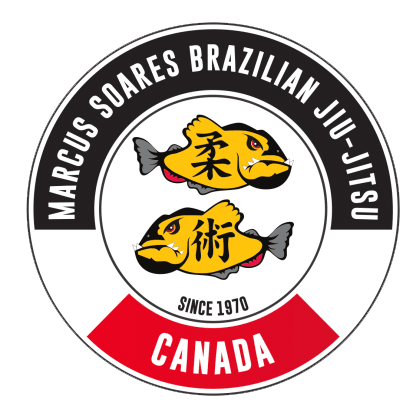Law enforcement officers regularly face a wide range of challenging and potentially dangerous situations on the job. The ability to effectively respond to and manage physical threats is crucial to ensuring both personal safety and the protection of civilians. Brazilian Jiu-Jitsu, known as BJJ, is a highly effective martial art and self-defence system that offers valuable benefits for law enforcement personnel.
In this article, we will explore the key BJJ techniques and principles that are most applicable to law enforcement situations and how Marcus Soares Brazilian Jiu-Jitsu’s tailored program is designed to equip them with critical skills for success on the job. Stay tuned as we dive deeper into the world of Brazilian Jiu-Jitsu for law enforcement, providing valuable insights and practical advice for those who dedicate their lives to protecting and serving our communities.
Understanding Brazilian JIu-Jitsu
At its core, Brazilian Jiu-Jitsu is a grappling and ground-fighting martial art that empowers practitioners to subdue and control opponents, even those who are larger and stronger. The art’s emphasis on technique, leverage, and strategy over brute strength makes it an ideal fit for law enforcement officers, who may need to apprehend and control suspects while minimizing the risk of injury to all parties involved. BJJ’s focus on control and submission techniques also aligns with law enforcement’s responsibilities to protect and serve their community, as officers aim to manage dangerous situations effectively while prioritizing safety.
Essential Brazilian Jiu-Jitsu Techniques for Law Enforcement
- Takedowns: Effective takedown techniques are crucial in law enforcement situations, allowing officers to bring uncooperative suspects to the ground while minimizing the risk of injury. BJJ teaches various takedowns, including trips, throws and body locks, helping officers remain in control even during physical confrontations.
- Joint Locks: Joint locks are powerful techniques used in Brazilian Jiu-Jitsu to immobilize an opponent’s limbs, rendering them compliant. Law enforcement officers can employ these non-violent control techniques to safely detain suspects without causing undue harm.
- Ground Control: BJJ emphasizes ground control, focusing on establishing dominant positions that minimize the risk of injury and allow for effective restraint. Officers trained in Brazilian Jiu-Jitsu can swiftly secure a position of advantage on the ground to control a non-compliant suspect efficiently.
- Choke Holds: BJJ includes various chokehold techniques that can be powerful tools for law enforcement officers to subdue combative suspects humanely. By applying pressure to the carotid arteries, officers can temporarily incapacitate an individual without inflicting lasting injury.
The Importance of De-escalation in Law Enforcement
De-escalation is a core value in law enforcement, as officers must strive to resolve volatile situations without resorting to unnecessary force. BJJ training encompasses the physical skills necessary to manage confrontations effectively while also promoting a calm and tactical mindset. Through the practice of Brazilian Jiu-Jitsu, officers develop the ability to remain composed under pressure, enabling them to assess and adapt to potentially dangerous scenarios. This mental fortitude, combined with the practical self-defence skills gained through BJJ, provides law enforcement personnel with the tools necessary to de-escalate difficult situations successfully.
Building Teamwork and Trust in Law Enforcement
Teamwork and trust among law enforcement officers are vital components of successful policing. At the Marcus Soares Brazilian Jiu-Jitsu, our specialized program focuses on building camaraderie and a strong support network among law enforcement students. Participating in BJJ classes together, officers forge trust in one another, as well as the skills they have acquired, leading to more efficient teamwork in the field. The supportive, inclusive environment at our academy also equips officers with the confidence to overcome challenges and work together to protect their community.
Tailored Training at The Marcus Soares Brazilian Jiu-Jitsu
The Marcus Soares Brazilian Jiu-Jitsu offers specialized BJJ training programs that cater to the distinct requirements of law enforcement officers. Recognizing that officers face unique challenges in their line of duty, our curriculum focuses on the most applicable techniques and principles for law enforcement situations.
- Expert Instructors: Our team of accomplished instructors is well-acquainted with the physical demands and dangerous scenarios that law enforcement officers may encounter. Through their vast experience in Brazilian Jiu-Jitsu, they tailor the training program to ensure the most effective techniques are imparted upon our students.
- Scenario-Based Training: Our tailored BJJ program incorporates practical, scenario-based training to help law enforcement students apply their skills effectively in real-world situations. This hands-on approach not only reinforces the physical techniques learned in class but also enhances officers’ decision-making and problem-solving abilities.
- Continued Education: The Marcus Soares BJJ Academy values the importance of continued education for law enforcement professionals. Our curriculum is continuously updated to reflect the latest advancements and best practices, ensuring that our students remain at the forefront of knowledge in Brazilian Jiu-Jitsu.
- Flexible Schedule: As a Brazilian Jiu-Jitsu Academy that caters to law enforcement professionals, we understand the demanding nature of their work commitments. Our training schedule offers flexibility, allowing officers to train consistently without compromising their essential duties.
Conclusion:
Law enforcement officers play a critical role in protecting and serving their communities, and Brazilian Jiu-Jitsu training offers invaluable benefits to enhance their performance and safety on the job. By embracing BJJ as part of their professional growth, law enforcement officers can ensure that they are equipped with the best tools to face the challenges of their job and maintain the safety of their communities. Indeed, Brazilian Jiu-Jitsu is more than just a martial art–it is a powerful training system that fosters a strong mind, body, and spirit, preparing law enforcement officers to succeed in their mission to protect and serve.
The Marcus Soares Brazilian Jiu-Jitsu recognizes the unique needs of law enforcement personnel and offers specialized Jiu-Jitsu training programs specifically designed for them. With our expert instructors and scenario-based training approach, officers can acquire essential BJJ techniques while developing valuable mental fortitude, teamwork, and de-escalation abilities. Let us help foster camaraderie and teamwork among students, enabling law enforcement officers to build a support network with their peers! Contact us today to learn more about our programs!

